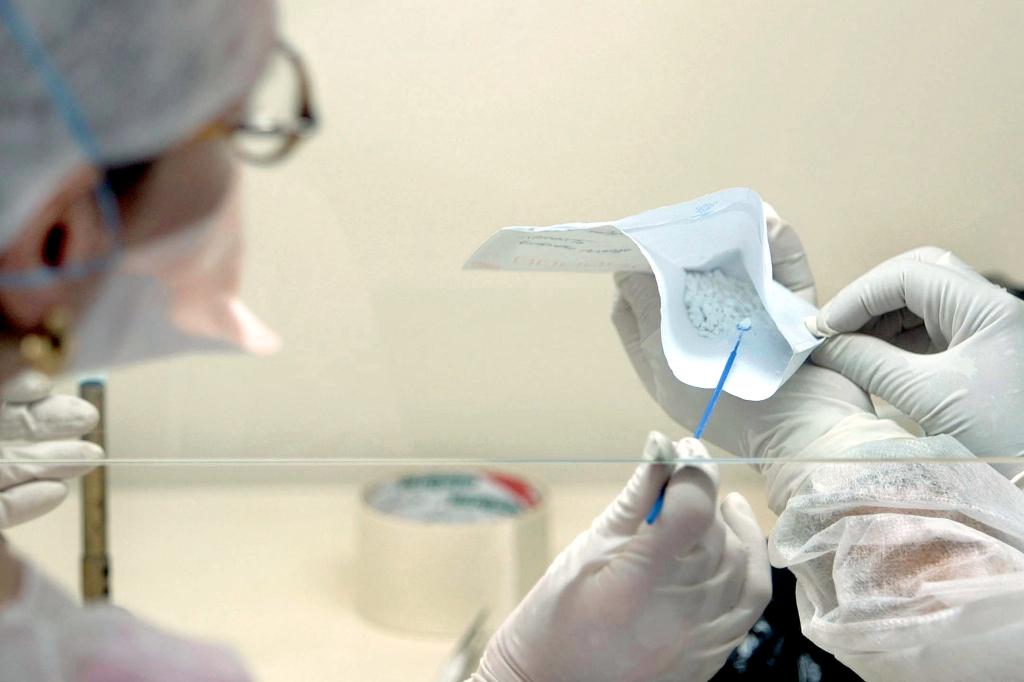US bioethics panel tentatively OKs testing anthrax vaccine on children
Technicians at the Adolfo Lutz Institute take white powder found in a suspicious package for examination and testing for anthrax contamination, 24 October 2001 at the institute in Sao Paulo.
Will medical researchers be allowed to test the anthrax vaccination on children? A US bioethics panel gave a tentative "yes" to the notion this week, immediately sparking off controversy in the medical world.
The Presidential Commission for the Study of Bioethical Issues issued a March 20th report tentatively OKing such research, potentially in children as young as infants — although the panel made sure to emphasize that "many significant steps would have to be taken" before such testing would take place, wrote the BBC.
Read more from GlobalPost: Anthrax sent to Pakistan prime minister's office
US Health and Human Services Secretary Kathleen Sebelius requested the study take place last year, leading to a report that "concluded that the federal government would have to take multiple steps before anthrax vaccine trials with children could be ethically considered."
“The safety of our children is paramount and we have to get this precisely right,” said Commission Chair Amy Gutmann in a press release on the topic, which noted that children do not stand to benefit directly from the testing, necessitating that such trials be kept small.
Why do such a thing in the first place?
According to Reuters, current information about the safety of the anthrax vaccine comes from around 2.9 million adults, primarily soldiers in Iraq thought to be at a high risk of a potential attack.
However, almost nothing is known of what a safe dose for use in children is, a potential problem if a terrorist attack using anthrax does hit the US.
“The Bioethics Commission recognizes both the federal government’s fundamental duty to protect individual children from undue risk during research and its obligation to protect all children – as far as ethically and practically possible – during an emergency by being prepared,” commented doctor and Bioethics Commission member Daniel Sulmasy in the release.
Critics have come out against the decision to tentatively move towards OKing such research, including founder of the Alliance for Human Research Protection, who said to the BBC that such research would cause "moral harm for us as a nation and suffering for the children. They should have said, 'thou shalt not.'"
Others argue that antibiotics would be sufficient to protect children in case of such an attack.
We want to hear your feedback so we can keep improving our website, theworld.org. Please fill out this quick survey and let us know your thoughts (your answers will be anonymous). Thanks for your time!
